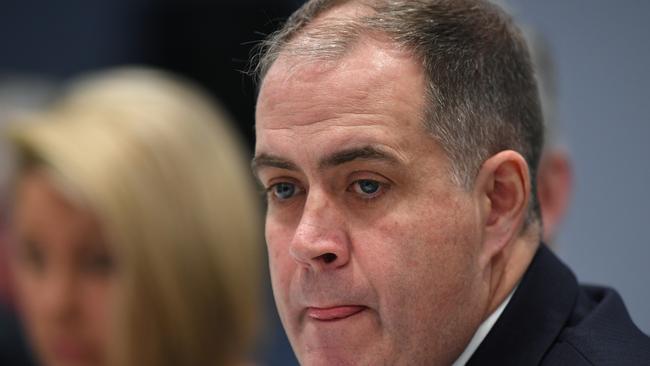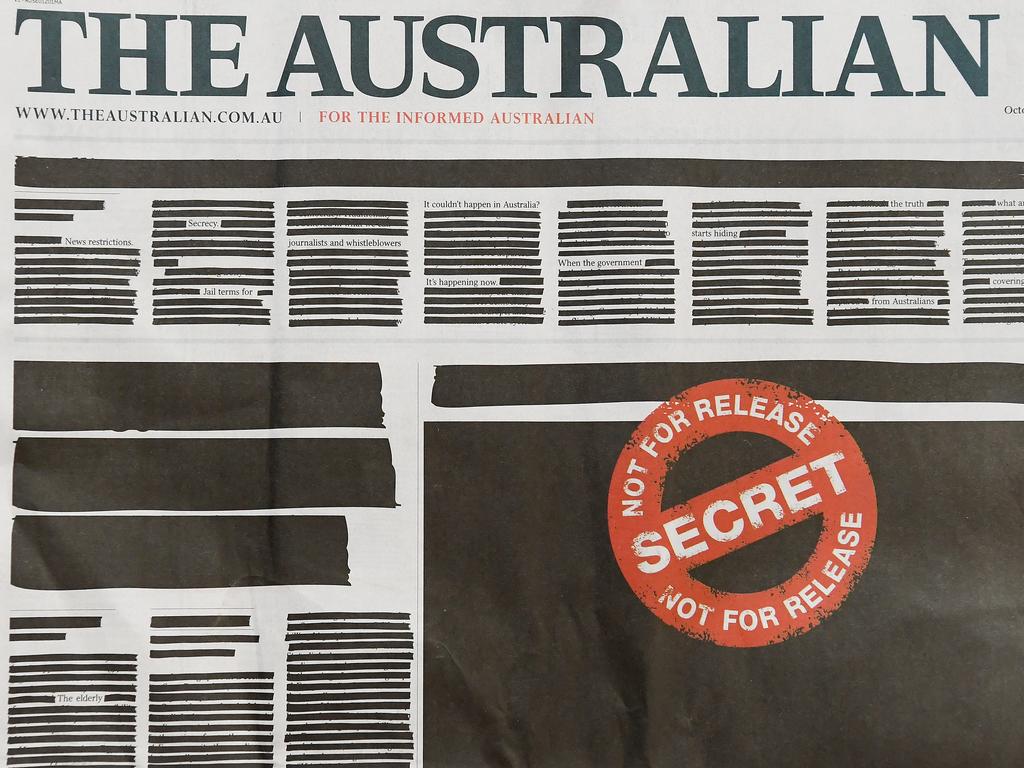Content on ice as ABC still frozen
Global media giants like Netflix threaten to drown out Australian voices and stories, says ABC’s David Anderson.

ABC managing director David Anderson has warned that the public broadcaster faces a “challenging operating environment”, amid rising content costs and stiff competition from international streaming giants, including Netflix and Disney.
In his opening statement to Senate estimates on Tuesday evening, Mr Anderson highlighted the television and radio broadcaster’s budget hole of $84m after the federal government froze its indexation of funding, meaning legislated increases in the $1bn it receives each year from taxpayers would not occur.
As a result, the ABC needed to find savings of about $40m annually from the 2022 financial year.
READ MORE: Jobs to go as ABC strives for relevance, diversity | Gloves off as unions target ABC’s ‘bonus bunch’
“At the same time, production costs of making quality Australian content are rising rapidly,” Mr Anderson said.
“The competition for audience attention is intense as global media giants like Netflix, Amazon, Disney and Apple threaten to drown out Australian voices and stories.
“We also need to invest in new technology to meet audience expectations of digital services and also deliver efficiencies in our business.”
Mr Anderson, who is leading an extensive review of the broadcaster’s vast operations, said “tough choices” would need to be made in the next few years.
The findings of the review, which covers its controversial website ABC Life and property assets, will form part of its five-year blueprint to be delivered in March.
Mr Anderson said there will be job losses as part of its five-year plan, which will be delivered in March, as reported in The Australian on Monday.
“There will be job losses, it’s not something I can quantify...at this point in time because I think that there’s still more work to be done and as we look at the efficiency of what it is that we’re doing some of it relates to people’s employment, some of it does not.
“Efficiency comes in many forms, so I’m reluctant to put a number on that at the moment,” he said.
The 49 year-old said the ABC is reviewing its property portfolio, consisting of 46 locations across Australia, and has carried out a feasibility study, which has looked at “some of the immediate options”.
It has specifically looked at the opportunities that might exist with its Ultimo building in Sydney, which houses 2000 of its 4500-plus workforce.
Mr Anderson said a relocation from Ultimo would be “quite expensive”, but it is looking at what the commercial value might be of the floors within Ultimo if it were to rent them out.
“The purpose of the feasibility study is really to look to see if there is something that we can do within our property portfolio that helps us meet the saving challenge,” he said.
The ABC’s Ultimo building is valued at $330 million.
Mr Anderson also defended the ABC’s decision to air an undercover documentary on One Nation and its links to the US gun lobby.
He told the Senate that the program was subject to a stringent set of checks before being broadcast.
The film was described by Pauline Hanson in March as a “political attack” involving entrapment and selective editing, but Mr Anderson said the documentary complied with the public broadcaster’s editorial standards and policies.
He said the ABC paid a $5000 licence fee to Al Jazeera for the documentary, although it “might have been in-kind for access to the ABC’s archive footage”.
He said he did not know if the ABC had sought comment from One Nation before it was aired.
Senator Hanson, who questioned Mr Anderson during the estimates hearing, said in March: “If the ABC had any ethical bone in their body, they would refuse to put this unfair and unbalanced story to air.”
Mr Anderson said the documentary was submitted to the ABC’s legal department for approval, and that all purchased material had to meet ABC editorial standards and policies, just as its own work did.
“I didn’t see that documentary before that went to air but it certainly went through the process that it would normally go through, with an editorial manager that would have reviewed it prior to it going to air,” he said.




To join the conversation, please log in. Don't have an account? Register
Join the conversation, you are commenting as Logout